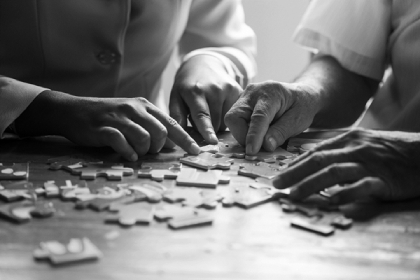Life after COVID19 for Senior Citizens

From the outbreak of the COVID 19 pandemic, it has been clear that the older a person is, the greater the risk of contracting the disease, the greater the severity, and the more difficult the recovery. Senior citizens have been told to take the greatest possible precautions to avoid Coronavirus infection. Despite this, the majority of severe COVID19 cases have been among the elderly. For those who have recovered, the return to their daily activities may still be some time away. Many of the symptoms of COVID 19 may take considerable time to disappear completely, so even if you can return to “normal” life, precautions still must be taken. Even if there are no remaining signs of the infection, recent studies have shown a phenomenon called “long covid,” where physical and psychological problems come to the surface long after patients think they have completely recovered. If you have recovered from COVID 19 and are a senior citizen, there are a few Dos and Don’ts designed to keep help in your long-term recovery.
Continue Precautions
Much said about people developing immunity after getting COVID 19. This may be correct, but the matter is still in dispute, and there is no certainty about how long the immunity lasts. Do not presume that you are safe because you have recovered and that you can forget about all the irksome precautions of wearing masks, social distancing, washing hands regularly, and so on. The risk remains, and if you should fall sick again, it could be much worse than the first time. Seniors who have recovered from COVID19 must continue to take all precautions until the Government or their doctors tell them that these steps are no longer required.
Exercise
After COVID19, your recovery may be uneven, and there will be days when you feel less healthy than others. Keeping this in mind, you must exercise regularly to build up your strength, stamina, and vitality. If you exercised before you fell sick, start again but at a much lower level of intensity. For example, if you used to walk for 3 Kms., every morning, begin by walking only 0.5 Km. Once you feel comfortable, you can slowly increase the intensity level of the exercise. Be careful not to overstrain yourself – this could cause a setback to your recovery. After COVID19, people may experience sudden bouts of exhaustion. If this happens to you, stop and rest. If you did not exercise regularly before you became sick, consult your doctor for advice on how to start.
Eat The Right Food
Coronavirus placed a considerable amount of stress on your body. The strong medicines you had to take to fight it off will have increased the amount of stress. Regaining your health will require eating nutritious foods. Loss of appetite is a common after-effect of COVID 19. In India, food habits and diets change every few hundred kilometers so prescribing what you should eat in detail is not viable. You need to eat food that you enjoy so that the lack of appetite is gradually overcome. Simultaneously, the food should be rich in proteins, carbohydrates, vitamins, and fiber. Avoid oily food and items that are difficult to digest. If you are not sure what you should eat, consult a dietician or ask your doctor for advice.
Slow Down
After any illness, there is a psychological need to return to normal activities as soon as possible, as this creates the feeling of having returned to “normal.” Whether it is work, hobbies, social activities, or anything else, start slowly and take one day at a time. Do not over commit yourself to undertake anything that is physically or mentally strenuous. You may feel confident of your abilities, but after a severe illness, it takes time for the mind and body to resynchronize so that they can function in tandem. You will gradually find that you can do more, but let it come naturally, do not force yourself to do more than you are comfortable with.
Stay Alert For Warning Signs
Stay alert for any changes in your body or any minor aches and pains that do not go away quickly. For example, if you have been affected by regular headaches in the past, but now they are more frequent, severe, or longer-lasting, inform your doctor without delay. Any body pains, weakness, digestive issues, or other changes to your health should not be ignored. Please tell your doctor about them. You are recovering from a significant illness, and these could be signs that your recovery is not proceeding well and that you need to take special precautions or take medication.
Being Solitary Is Not Good
Recovery from COVID 19 is a long and slow process. You will often need help with your normal daily activities. Please do not feel you are a burden on others by asking for their assistance. For example, if going shopping is exhausting, ask a family member or friend to do it for you. There is no shame or weakness in asking for help. If the roles were reversed, you would gladly do what you could to help others. Not having the service you may need will slow down your recovery, which will only increase the time you need help.
After COVID19, the recovery can be slow. Let nature take its course while you do what you can in terms of exercise, nutrition, relaxation, and caring for yourself. That is the right path to a full and lasting recovery. If you have any doubts about your health and what you need to do to improve it, consult your doctor.
